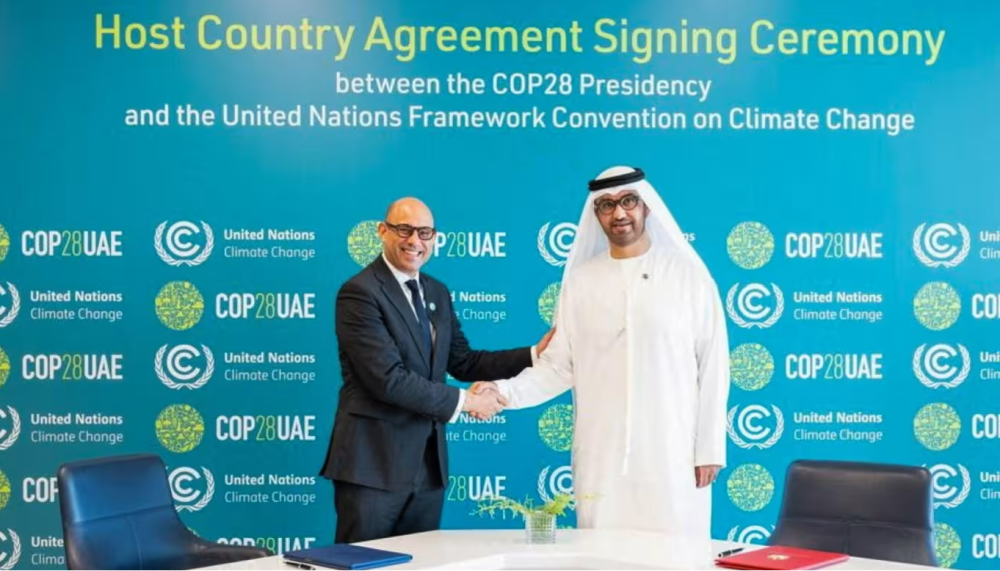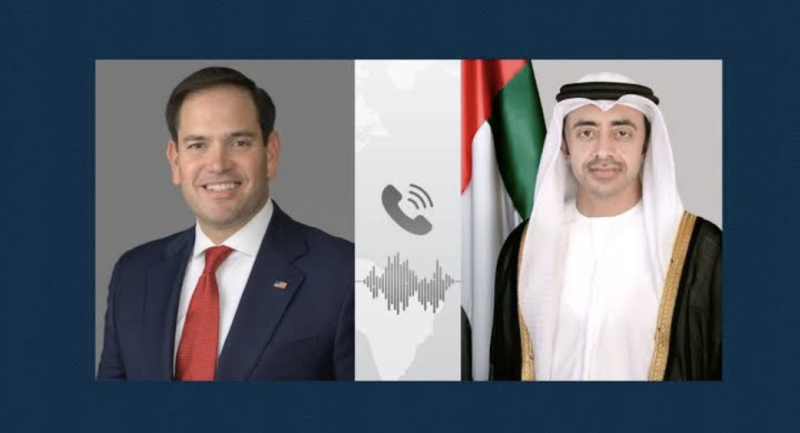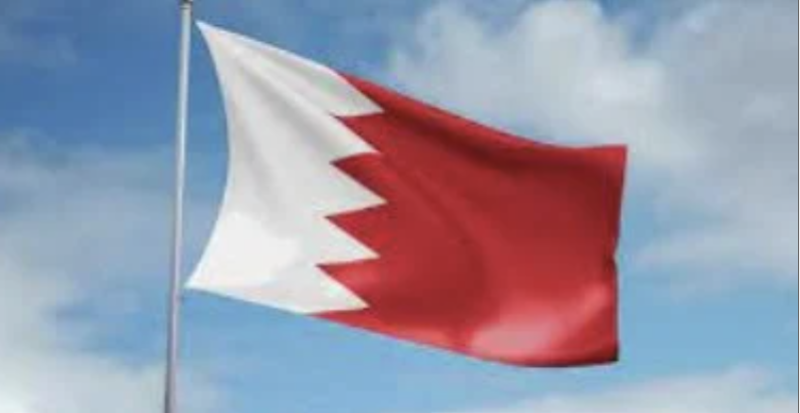UAE proposes to host UN climate summit for second year as Russia blocks talks


The United Arab Emirates is proffering itself as host of a second annual UN climate summit, as negotiations over who will lead the next round of critical discussions on global warming remain deadlocked by geopolitical tensions following Russia’s war in Ukraine.
The move would give the UAE, which will host the UN COP28 in Dubai later this year, a large influence over global climate policy during a key two-year period when the world needs to agree on efforts to halt climate change.
Next year’s COP29 is due to be hosted by a country in eastern Europe, as part of a rotation that sees various regions and countries preside over the event, which in recent years has been attended by tens of thousands of people.
The 23 countries that make up the COP grouping known as the eastern European states must unanimously agree on the host country.
Russia, however, has pushed back against any EU member country hosting the summit in the wake of the Ukraine war. Armenia and Azerbaijan were front runners until this month, but Baku’s seizure of the enclave of Nagorno-Karabakh has escalated tensions between the two countries, and with Russia.
Germany, as the home of the UN Framework Convention on Climate Change, is the default host if countries cannot agree on another option, while the UAE would remain the holder of the presidency.
But several people familiar with discussions said the UAE was reluctant to preside over the negotiations unless it could also host the event.
The COP28 presidency office said the host of the next UN climate summit needed to be agreed under the proper procedures. “This is not even on our radar. We remain focused on delivering ambitious climate action at COP28,” it added.
At the same time, Germany was “not keen” to host the summit at the Bonn headquarters of the UNFCCC, two people familiar with the discussions said, on the grounds that the city was not large enough to accommodate the huge crowd that would descend on its confines for the fortnight’s duration.
The German foreign ministry said: “It is important that the EEG group reaches a decision on the COP presidency following the procedures of the UNFCCC.”
More than 45,000 people registered to attend last year’s COP in Sharm el-Sheikh, Egypt, and about 40,000 attended the year before in Glasgow.
Another resolution to the impasse would be for a country outside the eastern European group to step forward with an offer to host and preside over the event.
While there is no deadline for an agreement about the handover to the next COP host, the scale of the event and the complexity of the negotiations means countries typically need a full year to prepare.
At this year’s COP28, the UAE will preside over talks among almost 200 countries that will aim to reach agreements on the so-called global stocktake of emissions, and to seal arrangements for a fund for loss and damage related to climate change.
Some country negotiators are hoping to include wording and a timeline for the phaseout of fossil fuels, and fresh targets beyond 2030, in the final agreement.
Laying out the agenda for COP28, Sultan Ahmed al-Jaber, the president-designate, set down a loose “mid-century” timeline for the reduction of fossil fuels produced without the capture of emissions. The EU has said it will also push for a phase-out of so-called unabated fossil fuels, or those burned without emissions captured, “well before 2050”.

Abu Dhabi – UAE Deputy Prime Minister and Minister of Foreign Affairs Sheikh Abdullah bin Zayed Al Nahyan received a phone call from U.S. Sec…

Manama – The Ministry of Foreign Affairs of the Kingdom of Bahrain expressed its deep appreciation, in its capacity as the current chair of t…

Muscat – The Sultanate of Oman announced on Tuesday that it is closely following the latest developments in the Republic of Yemen, reiteratin…